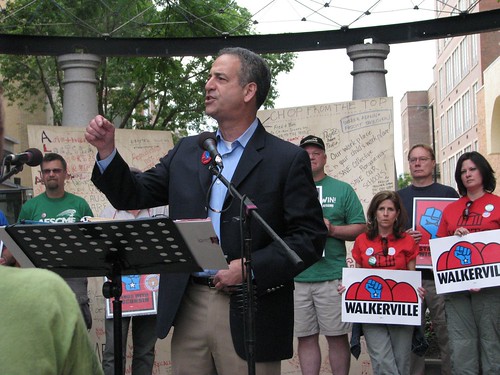From Laura Bassett at HuffPo:
Under the new rule, set forth by the Affordable Care Act, most women employed in the U.S. will have the cost of their birth control covered with no co-pay. Churches and other places of worship would continue to be exempt from having to cover contraception for their employees if they morally object to the practice, according to Health and Human Services Secretary Kathleen Sebelius, but all other organizations will have a year to comply with the new requirement, regardless of whether or not they are religiously affiliated” (emphasis added).Of course, that wasn't enough for Archbishop Timothy Dolan, president of the extremely powerful U.S. Conference of Catholic Bishops, who called the decision "unconscionable." I sympathize. Sorta kinda.
I don't believe the Catholic Church should have to pay for something it believes is wrong. (Of course, I don't think I should have to pay for unjust wars and corporate welfare either, but go figure.) At the same time, I don't believe that women who are employed by church-affiliated institutions should have to pay for contraception out of their own pockets. Neither should women employed by churches for that matter.
In fact, the Catholic Church shouldn't be in the business of providing health insurance for any U.S. citizens. Ever. Rather, I believe that health care is a human right and that Medicare should be available to all of us, regardless of age, religious affiliation, or employment status. And I believe that women should be able to make their own choices about their reproductive health. Those who believe abortion is wrong shouldn't have one, and those who believe that contraception is wrong shouldn't use it. Everyone should have the freedom to choose according to their own conscience. Simple, right? It should be.
Universal single-payer health care would solve the bishops’ problem, would it not? Religious institutions wouldn’t have to pay for their employees’ contraceptives. So why the hell aren't the good bishops lobbying for Medicare for all? Because that's not what the bishops really want. The bishops don't want to have to settle for just telling women what to do with their bodies; they want to control what women do with their bodies. And there's the real rub, isn't it?
Of course, the bishops are entitled to their opinion. They're just not entitled to set U.S. health care policy. But that would be news to them. More from Laura Bassett:
The bishops were not only influential in swaying votes during the health care reform debate; [Richard] Doerflinger said they actually helped Reps. Bart Stupak (D-Mich.) and Joe Pitts (R-Pa.) write the controversial anti-abortion amendment, which the House approved by a vote of 290 to 194.
"Those bishops were literally sitting in Bart Stupak's office and, from what we could tell, instructing him all about the laws he should be supporting, and the text of the laws, and the strategy of getting them through," said Terry O'Neill, the president of the National Organization for Women. "It was absolutely appalling."
The National Organization for Women has called for the bishops conference to lose its tax-exempt status over its lobbying activities.

Please, for God’s sake, get this straight: the United States is not a Catholic country. It’s not a Christian country. It’s a freedom-of-religion country. That doesn't mean that we’re an anti-religion country (God forbid!). It means that all of us have the right to practice our beliefs and religion—or our nonbeliefs and nonreligion—as we choose. It means that practitioners of one religion cannot impose their beliefs on the rest of us. That includes the good bishops.
Most lobbyists on Capitol Hill have to pay for the privilege and power the bishops wield. Government by and for the monied interests is plenty bad enough and absolutely must be eradicated. But government by and for the Catholic Church, while it pays not a dime in taxes, so that it can control what women can and can't do with their own bodies—that's what I call unconscionable.
I stand corrected: Pope is no tea partier: Benedict backs guaranteed health care for all







